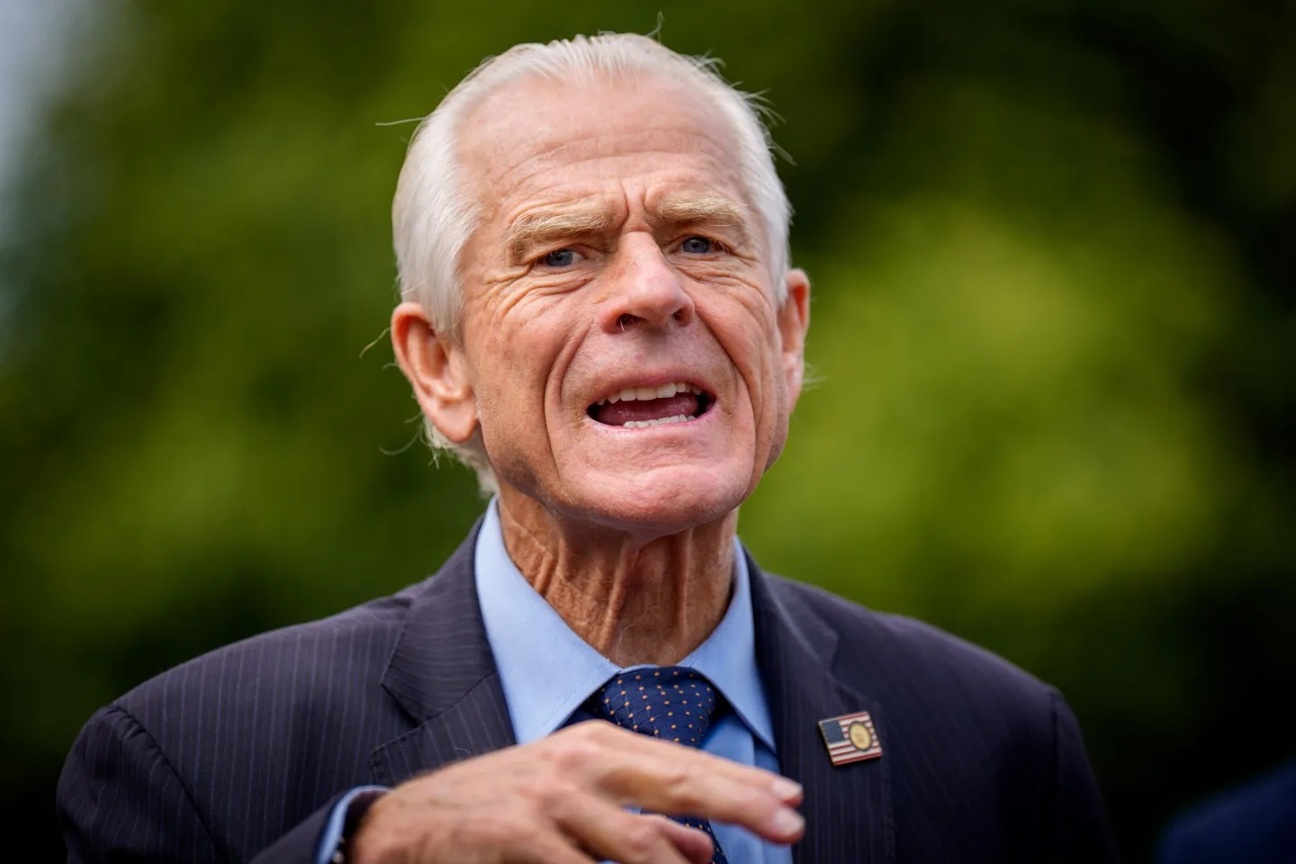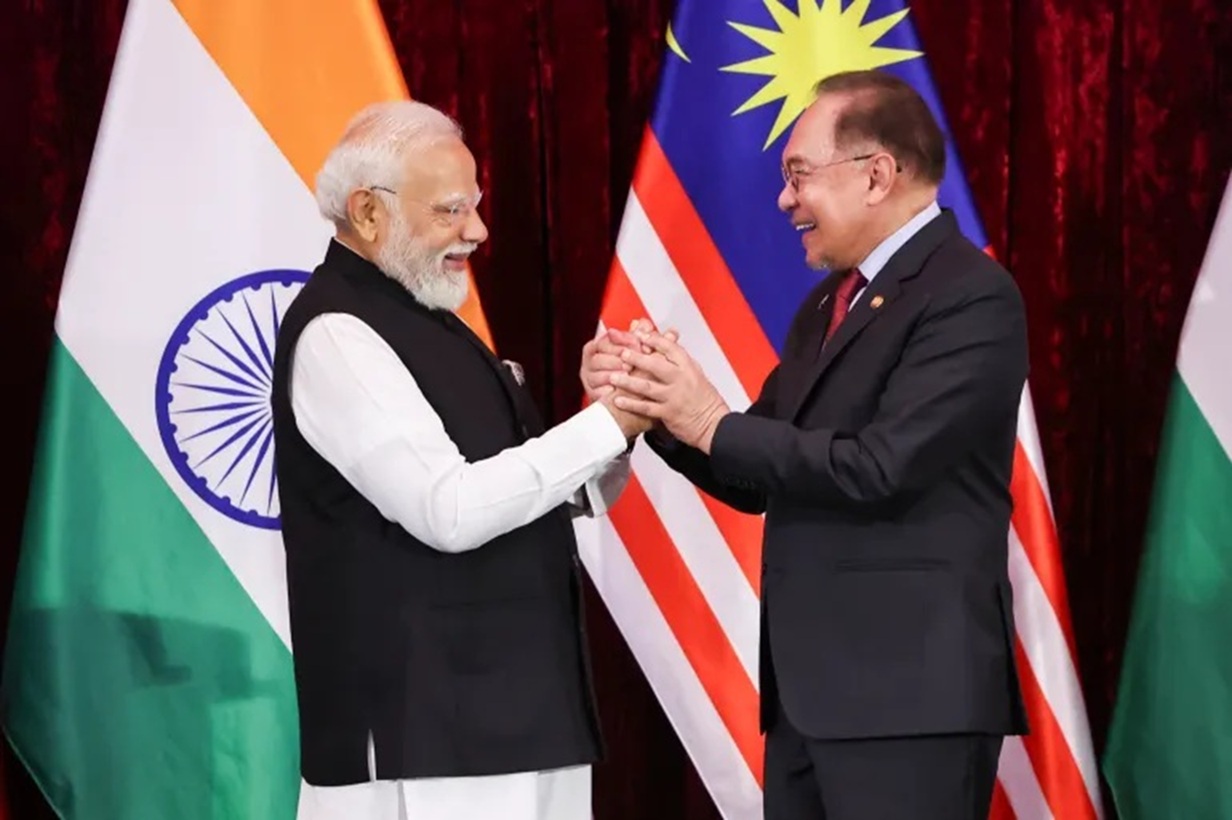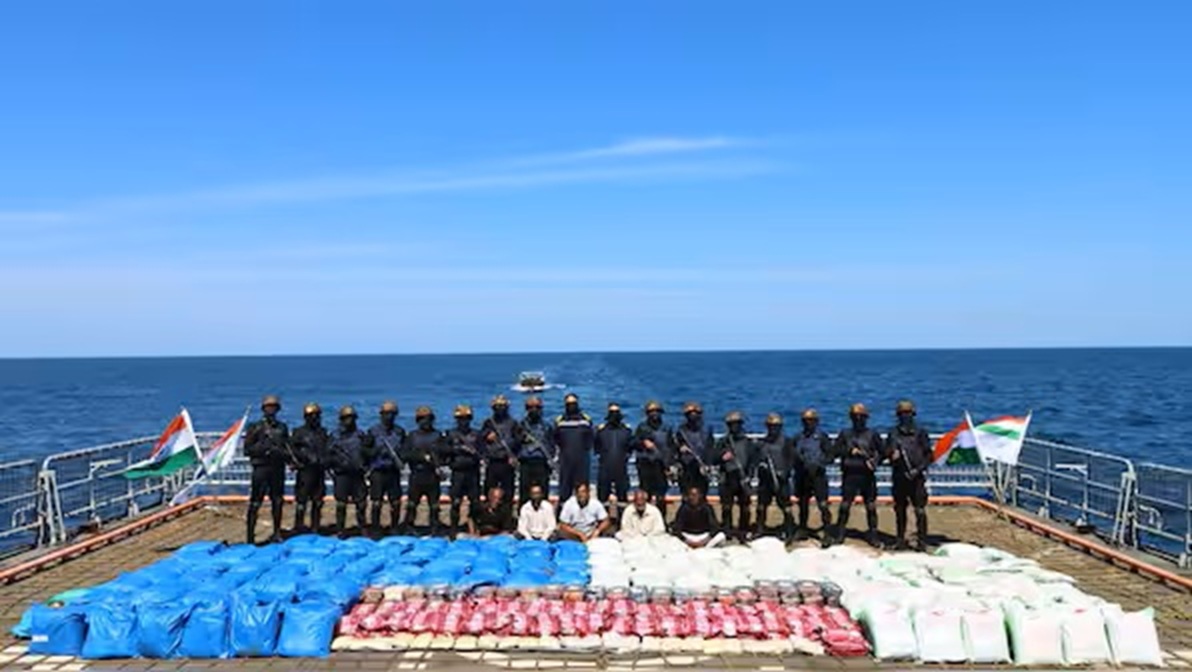In 2022, a grand jury in the US indicted Peter Navarro on two counts of contempt of Congress. In 2023, Navarro was convicted on both counts, and in 2024, he was sentenced to four months in jail, becoming the first former White House official to be imprisoned on a contempt-of-Congress conviction. Foul-mouthed Navarro may have some compulsions in saying the Ukraine War as Modi’s war. Considering India as merely a trade partner by Trump’s advisors is a strategic blunder, which has demoted the US from a superpower to a regional player.
Peter Navarro’s attempt to brand the Ukraine conflict as “Modi’s war” is more than absurd political theatre. It is a calculated distraction from America’s own hand in fuelling and prolonging wars across the world. To suggest that India, which is only safeguarding its energy security, is responsible for a European war born out of NATO’s eastward march and Washington’s appetite for confrontation, is not just dishonest but offensive to history itself. If peace in Ukraine runs through New Delhi, then war runs unmistakably through Washington.
Since the Second World War, the United States has destabilised nations severely under the guise of freedom, democracy or humanitarian intervention. Korea, Vietnam, Iraq, Libya, Afghanistan and Syria were all sold as honourable crusades, but each one of them brought destruction in their aftermath. Three million Vietnamese died, Iraq lost a million more, Afghanistan was abandoned after twenty years of bloodletting, Libya collapsed into chaos, and Syria remains divided. The same playbook now unfolds in Ukraine, where NATO expansion eastward has deliberately ignored Russia’s red lines, creating the tinderbox that exploded in 2022. Washington was not blindsided; it engineered the conditions
Navarro wants Americans to believe that India’s discounted purchase of Russian oil is bankrolling Moscow’s war machine. This narrative is shallow and hypocritical. India has consistently stated that its primary obligation is to the energy security of 1.4 billion citizens. The government has made it clear that it will purchase energy from wherever the deal is best, just as Europe does. In fact, European countries have imported more Russian energy in a single week than India does in a month, yet no one in Washington brands Berlin or Paris as funders of war. The accusation against India is not about oil; it is about punishing a country that refuses to bow to American diktats.
The deeper truth is that the Ukraine war is a windfall for America’s defence industry. Lockheed Martin, Raytheon, Northrop Grumman and General Dynamics are posting record profits. Over 170 billion dollars in so-called aid has flowed to Ukraine, the bulk of it in weapons that never leave US soil but instead move directly from Pentagon contracts into corporate warehouses. Congress signs the cheque, contractors collect, and ordinary American taxpayers foot the bill. Navarro’s complaint that “everybody in America loses because of what India is doing” is a smokescreen. Ordinary Americans are losing because their government is mortgaging their future to feed a war machine that thrives on perpetual conflict.
The United States has long been involved in wars over oil and markets. It invaded Iraq under the false pretext of weapons of mass destruction, securing lucrative oil contracts in the process. It toppled Gaddafi in Libya, leaving behind anarchy but opening oil access to Western companies. Even today, American troops sit on Syrian oil fields with no mandate other than economic leverage. For such a country to accuse India of buying affordable oil to power its economy is a staggering act of hypocrisy.
Everywhere America goes, it leaves wreckage. Vietnam was framed as a fight against communism, Iraq as a war on terror, Afghanistan as a battle for freedom, and Libya as a humanitarian rescue. Each justification collapsed, but only after millions had died. Ukraine is presented as a struggle for democracy, yet it is in reality an American proxy war to weaken Russia and secure control over Europe’s security architecture. Washington’s real concern is not Kyiv’s sovereignty but maintaining NATO’s dominance and ensuring that Europe never acts independently of American strategic dictates.
This deception is sustained by America’s corporate media conglomerate networks, which hold a stake in defence and energy, and produce consent through inundating the airwaves with alarmist narratives. Saddam was alleged to possess WMDs, Assad was alleged to have gassed his citizens, and Russia was in an imminent state of collapse. Each claim prepared the ground for escalation. In Ukraine, President Zelenskyy was paraded before Congress as a freedom fighter, hailed in the media as the new Churchill, while inconvenient questions about corruption in Kyiv or NATO’s provocation were drowned out. It is no coincidence that the same corporations that own media outlets sit on the boards of defence firms that profit from war.
The hypocrisy is compounded by America’s double standards on security. Washington invokes the Monroe Doctrine to justify intervention in Latin America, but condemns Russia for objecting to NATO bases on its doorstep. When Soviet missiles were placed in Cuba in 1962, America threatened nuclear war. When NATO crept into Eastern Europe and set its sights on Ukraine, Russia’s concerns were mocked as paranoia. Such blindness is not accidental; it is ideological. The United States believes it alone has the right to spheres of influence, and any resistance must be branded as aggression.
Against this backdrop, India has chosen independence. New Delhi has not endorsed Moscow’s actions but has also refused to fall in line with Washington’s script. It has consistently called for dialogue and diplomacy while safeguarding its own interests. This is not siding with Russia, as Navarro insinuates. It is siding with the Indian people. To expect India to abandon affordable energy to appease Washington’s strategic ambitions is unrealistic and unjust. What Navarro calls “funding Modi’s war” is, in reality, India protecting its citizens from skyrocketing energy prices caused by Western sanctions.
The American defence industry, meanwhile, is the only true victor. The Brown University Costs of War project estimates that the US post-9/11 wars cost eight trillion dollars and killed nearly a million people directly. None of these wars made America safer, yet all enriched contractors. Ukraine is following the same pattern. Even as whispers grow in Washington that Ukraine cannot win, the flow of weapons continues. For defence giants, the longer the war drags on, the better. When the fighting ends, the reconstruction contracts will provide yet another payday.
Navarro’s framing of the Ukraine war as India’s responsibility is an attempt to deflect accountability from Washington’s own role in engineering and sustaining the conflict. It is also a convenient way to pressure India into falling in line with America’s sanctions regime. But the world is no longer unipolar. Nations like India will not be coerced into sacrificing sovereignty for Washington’s wars. New Delhi’s message is simple: it will decide its policies based on its national interest, not on American guilt-tripping.
The road to peace in Ukraine does not run through New Delhi. It runs through Washington and Brussels, through a recognition that flooding Ukraine with weapons will not defeat Russia, through a willingness to engage in dialogue instead of escalation, and through an acceptance that a stable Europe cannot be built on endless provocation. Navarro’s words are not just misguided; they are part of the very propaganda machine that sustains America’s path of permanent war.
If history teaches anything, it is that American wars are never about democracy or freedom. They are about markets, oil, and profits. Vietnam, Iraq, Libya, Afghanistan, and now Ukraine, the story of exceptionalism and unilateralism is the same. For Navarro to point fingers at India is to whitewash this record and insult a nation that has consistently stood for peace and autonomy. The war in Ukraine is not Modi’s war. It is America’s war, and the world knows it.
Article Courtesy: https://raksha-anirveda.com/
Title image courtesy: https://fortune.com/
Disclaimer: The views and opinions expressed by the author do not necessarily reflect the views of the Government of India and Defence Research and Studies







